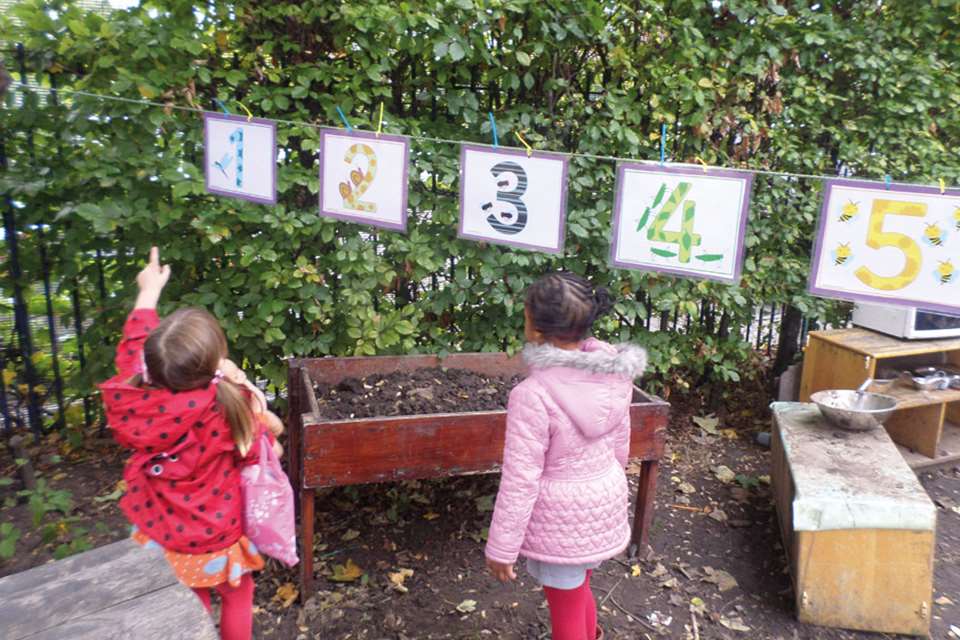Training: Better together - collaborative working
Hannah Crown
Tuesday, November 7, 2017
What difference can collaborative working make in the early years? Carla Solvason reports from a project to create clusters of schools to share expertise

As local authority advisory roles diminish, setting leaders are increasingly looking at gaining support through more informal systems. One such approach is for settings to work together on their own volition. The size, structure and premise of these groups varies, but usually the aim of the work is to develop quality through sharing knowledge and resources.
Over the past year I have had the pleasure of working closely with a group of education leaders in the North of England. The leaders met regularly, usually in groups of four to seven. Meetings were assisted by an external facilitator, though there is absolutely no reason why such groups should not be created organically.
My role has been to carry out an evaluation of the benefits of working this way, by speaking with groups of leaders and carrying out one-to-one interviews. I found that some of the fundamentals needed for such groups to work together effectively were quite surprising.
No egos, thanks
All of the leaders involved had no time or patience for egos. If someone’s aim was self-aggrandisement, or to prove that their setting was superior, they were unwelcome. One head teacher was frank about this, stating that if heads were boastful rather than honest and if they were not willing to share, then they were very quickly ejected. There was absolutely no space or patience for the leaders whose favourite lines began with, ‘We are fantastic at…’
Like-minded people
For the leaders I spoke with, sharing a similar world view to the others in their cluster was vital. The leaders knew that their children were being brought up in an area of low aspirations and extreme deprivation. Many did not get to enjoy many of the experiences of more privileged children. The context was multiple languages, poverty and a constant influx of refugee children. As a group, their aim was to collectively support these children, not the success of individual settings.
One wonderful example of the values of a cluster was its shared sports day. This particular cluster was made up of five schools in areas of deprivation and just one more affluent school. The children in the more deprived schools had limited opportunities to attend activities outside school and so usually performed poorly in sporting events. Because of this, the PE teachers within the cluster worked together for them to put on their own, cluster, sporting event. Here the children had the opportunity to compete against other children of a similar standard. But what of the more affluent school, where some very skilled children were competing at city level? This school took the opportunity to send its children who were not so talented and so did not usually gain the chance to represent it. The spirit was one of opportunity for all, not success for a few.
Open up
Expecting openness and honesty within an educational culture of accountability and competition can be difficult. A prerequisite of building relationships with peers was being honest. It was this that paved the way for trust to develop. In order to do this, the leaders shared. They shared SEFs for feedback, they shared action plans for further suggestion, they shared funding opportunities – but most importantly they shared their areas of weakness.
One way that they did this was with a ‘learning walk’. Here the leaders went en masse for a tour of one another’s settings. The important aspect was seeing the settings as they were, warts and all. The host leaders invited feedback on particular areas using pooled knowledge, expertise and experience of their colleagues. There was no show, it was not an Ofsted visit, just openness and honesty from all involved. This led to a willingness to change.
One learning walk resulted in a new head teacher ordering a skip for a Friday after school. She then managed to get her whole staff to stay for a couple of hours (bribed with delivery pizza) to clear out the clutter that had accrued under the previous head.
She would not have had the confidence to suggest this if not spurred on by the frank but supportive comments of her valued peers. When she felt empowered to suggest the clear-out to her staff, it turned out they had been desperate for just such a suggestion for a while.
Nobody’s perfect
Central to the effectiveness of this cluster working was acceptance of the fact that no one person (or setting) has all of the answers. Each leader had their own skillset, and each had strengths and weakness. So what better than to have the opportunity to draw on one another’s strengths in order to develop your areas of weakness?
This happened through shared training days: particular schools shared expertise through shared plans and activities such as the website review. There was a genuine feeling that together they were stronger. The growth of professional respect into genuine friendships then meant that when problems did occur, useful advice from an individual that they trusted and respected was just a phone call away.
We’re all in this together
There is definitely something to be said for the value of ‘safety in numbers’. When issues had been discussed across settings, or ideas compared and contrasted and good practice validated, leaders were in a far stronger position to argue that they felt that their practice was strong. And if it was not strong enough, they knew what needed to be done to improve it. An example – one setting received a call from Ofsted right after a leaders’ meeting where they had been reviewing one another’s websites. The school being visited was weak in this area, but following the session was able to point out to Ofsted exactly what was wrong with the website and what was needed to put it right.
Conclusions
The benefits of developing a trusted support network include increased confidence, the chance to improve any aspect of a setting through honest appraisal, better opportunities for children, and even better Ofsted outcomes. For some, the support groups were the very reason they had been willing to take on a leadership role in the first place. But the key restriction is time.
The leaders I worked with saw setting aside time and selecting a suitable time as fundamental to the success of these meetings. They commented that the meetings needed to be regular, diarised (not ad hoc) and that they needed to become embedded within the culture of the setting, as part of their CPD. Staff needed to ‘buy into’ the approach.
How you can develop a successful cross-setting partnership
1. Choose like-minded partners who have similar values to your own. What do you see as your key responsibilities and what other settings do you share those values with?
2. Choose a suitable time. Near the end of the day, around 3pm, worked well for these schools. The time indicates that the meetings were valued as they take up some of the working day, but they do not require the commitment of a late evening.
3. Diarise the year’s meetings at the earliest convenience and commit to attend, or if you are not able to attend, then identify someone to attend on your behalf.
4. Be prepared to open up and share your strengths and weaknesses. Everyone has something to offer, everyone has something to learn.
5. Be open to new ideas. When ideas are simply recycled, there is no progress. Be prepared for the introduction of new ideas (through research or expert advice) in order to move practice on.
6. Set an (albeit flexible) agenda and have someone take notes. In that way targets can be set and progress can be reviewed.
Dr Carla Solvason is a senior lecturer at the University of Worcester
This article is one of two. The second can be found here







